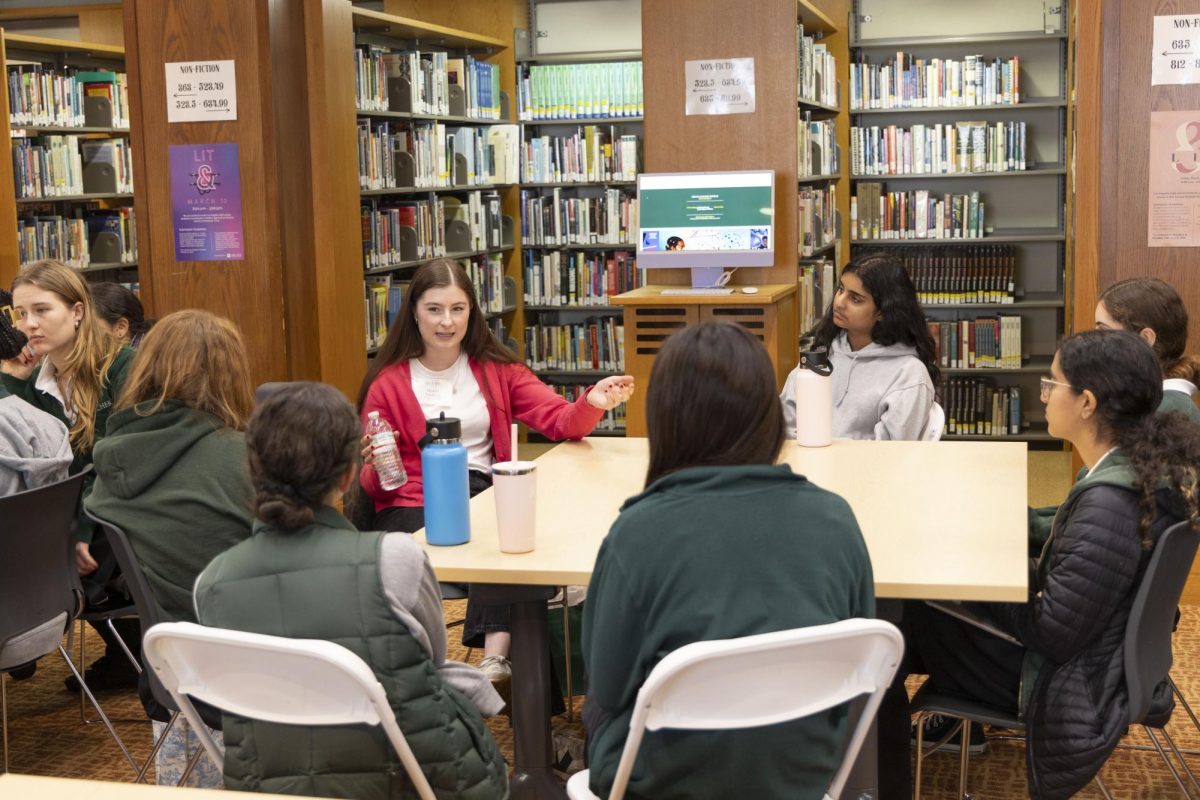All 49 county champions across California traveled to Sacramento to compete in the statewide Poetry Out Loud competition March 16-17. The competition had three rounds, with only the top five scorers advancing to the final round. Junior Selah Johnson was one of those finalists and ultimately won the competition, becoming the second Archer student to advance to the national competition within four years.
The national competition will take place May 5-7 in Washington, D.C. On the first day, Johnson will compete in a regional round against other state champions from the Western and Northwestern regions. If she advances, she will move on to the national final, which features one representative from each region.
English teacher Kathleen Keelty introduced POL to Archer when she first joined Archer. She said the competition is an opportunity to practice public speaking and interpretation skills, especially when engaging with abstract or complex language. Keelty said students often discover things about themselves through this experience.
Johnson will recite three poems in total, one of which must be from pre-20th century.
“[Johnson] made you feel that she wrote them, and that is really hard to do when you’re reciting a pre-20th century poem … making it feel modern and natural to be coming out. Her evidence of understanding in that poem makes other people feel like they can understand,” Keelty said. “The student who is memorizing the poem and reciting the poem needs to be kind of like an arm. The poem is very delicate [and] smooth, and they need to be able to put their arm in the sleeve and wear it without catching anything, without it snagging at all, so that it’s just a beautiful fit. So part of the magic is finding that beautiful fit, finding that poem that really speaks to you.”
Johnson said the judges often find participants struggle to demonstrate a deep understanding of the poem and the poet. Johnson worked with a poetry coach and Keelty in preparation for her performance. She said they always start by analyzing the poem, the perspective of the poet and its context.
“I think that for me, one of the best things that I’m able to do is talk with my poetry … If you don’t really break [the poem] down, you are going to miss subtle phrases and words in the poem that kind of allude to what emotion it actually is conveying,” Johnson said. “So, honestly, a lot of the time I’m not consciously thinking about the words of the poem and more so just the emotions. Even though accuracy is part of the score, I’m not thinking about each word. I’m letting the emotions just come out.”

Eleventh grade dean Stephanie Nicolard is one of the judges for Archer’s POL schoolwide competition. Participants are assessed across several categories: physical presence, voice and articulation, dramatic appropriateness, evidence of understanding and overall performance. Nicolard said dramatic appropriateness and evidence of understanding are the most important to her because they reflect a student’s grasp of the poem’s layered meanings and complexities.
“Poetry is meant to be heard. Poetry uses language in so many different ways, complex, mysterious, simple, open, sometimes cryptic, sometimes lyrical. Selah, with her background in performance, has a great understanding of what it takes to communicate the emotion that is hidden within language,” Nicolard said. “She’s an incredible representative of Archer for the national competition. She has such charisma and magnetic energy and aura to her, and she is someone who you can’t help but listen to and watch.”
After the results were announced, Johnson and two runner-ups were invited to the state Capitol Building for a hearing. Senator Allen, representing El Segundo, proposed renewing a 20-year funding initiative for Poetry Out Loud. Johnson said Allen invited them to the hearing to support the initiative and show lawmakers the impact POL has on teenagers’ lives.
“It was really nice being in the Capitol Building and seeing that state senators and assembly members really do care about the arts and want it to continue in California,” Johnson said. “I know that that’s been something that’s been on my mind this past school year — expanding arts education and expanding arts resources for students throughout Los Angeles, especially the Greater California area. Being able to have that experience made me so much more excited and hopeful for the future of art.”







![Faculty and students play in the Color Clash rematch March 20. Danilka Foranda-Zanipatin ('25) plays for the senior team. “Just to have some time deticated to just being supported by [a] large community… it’s just nice to have a little distraction.”](https://archeroracle.org/wp-content/uploads/2025/03/Screenshot-2025-03-20-at-4.12.21 PM.png)
